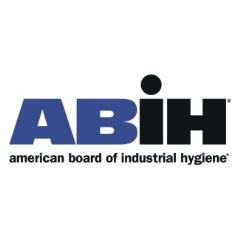Protecting Outdoor Workers from Lyme Disease Exposure Risks
The American Board of Industrial Hygiene® (ABIH®) reminds workers and industry of the need to educate employees about preventing tick-borne diseases.
All outdoor workers should check with their supervisor if they have questions about possible exposure to Lyme disease.
The most common tick-borne disease in the United States is Lyme disease according to the Centers for Disease Control and Prevention (CDC). Lyme disease is caused by the bacterium, Borrelia burgdorferi and is transmitted to humans through the bite of infected blacklegged ticks. The blacklegged tick spreads the disease in the northeastern, mid-Atlantic and north-central United States. The western blacklegged tick spreads the disease on the Pacific Coast.
As recently as 2010, the CDC reports that more than 22,500 confirmed and 7,500 probable cases of Lyme disease were reported to the agency. Occupational exposure to Lyme disease is a real concern for millions of workers who spend much of their time outdoors in areas known to have Lyme disease-causing ticks. The National Institute for Occupational Safety and Health (NIOSH) states, “All outdoor workers should check with their supervisor if they have questions about possible exposure to Lyme disease.” NIOSH reports that workers at risk of Lyme disease include, but are not limited to, those working in construction, landscaping, forestry, brush clearing, land surveying, farming, railroad work, oil field work, utility line work, park or wildlife management, and other outdoor work.
“Lyme disease is just one of several serious illnesses outdoor workers can be exposed to through infected ticks,” said Susan Ripple, CIH® and Chair of ABIH®. “Employers have a responsibility to educate their workers who spend a significant portion of their time outdoors about protecting themselves. This should include recognizing signs of infection and seeking treatment promptly; personal protective measures that may include repellants and proper clothing; the importance of removing ticks immediately and places where ticks often attach to humans; drying work clothing in a hot dryer to kill any ticks that may be present; and likely places ticks may be found outdoors.”
Certified Industrial Hygienists are uniquely qualified to help with these efforts. CIHs are trained in biohazards, health risk analysis, hazard communication, work environments and personal protective equipment. These and other core competencies of the CIH® program are instrumental for helping to prevent tick-borne diseases and protecting the health of outdoor workers.
To learn more about the American Board of Industrial Hygiene®, Certified Industrial Hygienist® credential or to locate a CIH® to perform industrial hygiene services, please visit www.ABIH.org, email abih@ABIH.org or call (517) 321-2638.
About the American Board of Industrial Hygiene ®
Since 1960, ABIH®, a not-for-profit corporation, has been the world’s largest organization for certifying professionals in the practice of industrial hygiene. ABIH® is the premier credentialing body responsible for ensuring high-quality certification including education, experience, examination, certification maintenance and ethics enforcement. Currently, more than 6800 people in 32 countries are certified to use the CIH® designation.
( Press Release Image: https://photos.webwire.com/prmedia/12710/204430/204430-1.jpg )
WebWireID204430
- Contact Information
- Paul Cochrane
- President
- Cochrane & Associates, LLC
- Contact via E-mail
This news content may be integrated into any legitimate news gathering and publishing effort. Linking is permitted.
News Release Distribution and Press Release Distribution Services Provided by WebWire.
